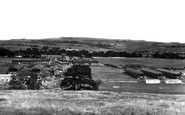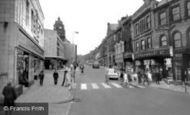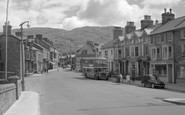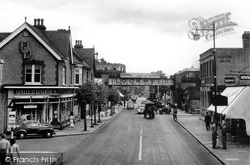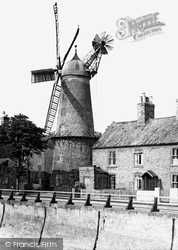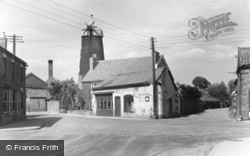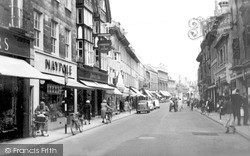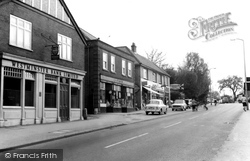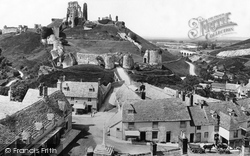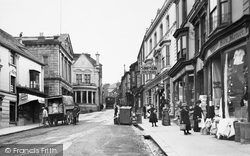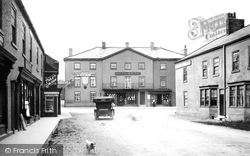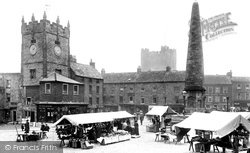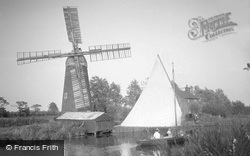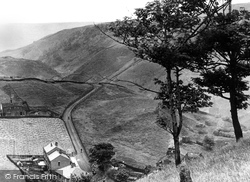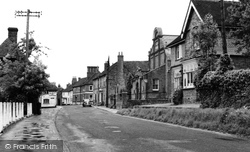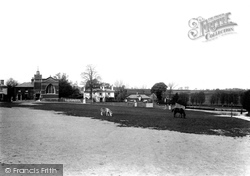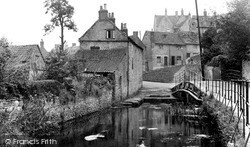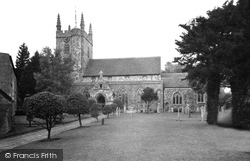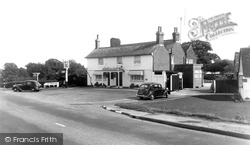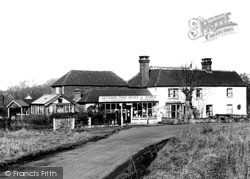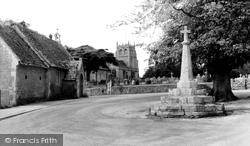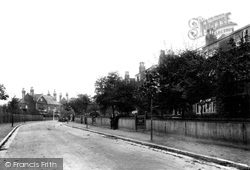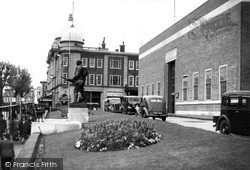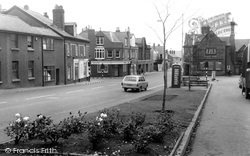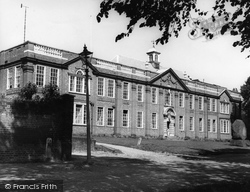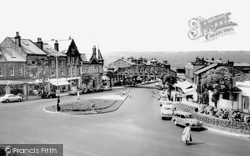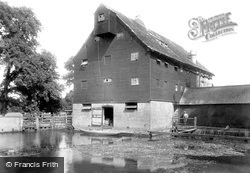Merry Christmas & Happy New Year!
Christmas Deliveries: If you placed an order on or before midday on Friday 19th December for Christmas delivery it was despatched before the Royal Mail or Parcel Force deadline and therefore should be received in time for Christmas. Orders placed after midday on Friday 19th December will be delivered in the New Year.
Please Note: Our offices and factory are now closed until Monday 5th January when we will be pleased to deal with any queries that have arisen during the holiday period.
During the holiday our Gift Cards may still be ordered for any last minute orders and will be sent automatically by email direct to your recipient - see here: Gift Cards
Places
11 places found.
Those places high-lighted have photos. All locations may have maps, books and memories.
Photos
54 photos found. Showing results 1,261 to 54.
Maps
494 maps found.
Books
25 books found. Showing results 1,513 to 1,536.
Memories
9,978 memories found. Showing results 631 to 640.
Doseley
When my dad Derick John Jones was born in 1944 he lived in a row of houses called Dill Doll Row or Dill Da Row as some people called them, they were situated at Sandy Bank, Doseley, just behind the Cheshire Cheese pub at Doseley. My dad lived ...Read more
A memory of Doseley in 1944 by
Childhood In Moodiesburn
I remember staying in Beechgrove just at the begining of the electric scheme, we had some very happy memories of the glen, Bedlay Castle, and going for walks down the luggie for a swim. Mr and Mrs Brown stayed in number ...Read more
A memory of Moodiesburn by
Grandmother Born1876
My grandmother used to tell me stories of Gateshead days when I was a kid, for example Tommy-on-the Bridge, area Bottle Bank, apparently was a permanent fixture in those days, he stood on the Swing Bridge, might have been ...Read more
A memory of Gateshead in 1890 by
Memory Lane
I was at Brownrigg from 1963 to 1966, I was in Pennine dorm, Lorna Herron. I remember Bent Toe, he had to be put down at the school, a girl called Diane was really upset about that. I remember gathering bracken on the fells for the ...Read more
A memory of Bellingham in 1965 by
Woolies !
I found this site through a link on another, which had pictures of old buses - http://www.old-bus-photos.co.uk/?cat=51 I commented there on some of the Yorkshire Woollen District Transport fleet, which my dad used to drive. I was born in ...Read more
A memory of Dewsbury in 1974 by
Raf Wyton
I lived on the RAF Base with my then husband after we married in 1974. I got a bus to work in Huntingdon that stopped just outside of the main gate. If I missed the bus I was very late for work. We stayed there until 1977 ...Read more
A memory of Wyton by
School Years
I also remember my first day at Ynysboeth Infants school, and unceremoniously being dragged there by my mother for the first time, because I didn't want to go to school. However, as I was happily greeted by the teacher on entering the ...Read more
A memory of Ynysboeth in 1940 by
Warners
As a young child I can remember several holidays taken at the Warners holiday camp at Seaton. The serious business of 'motoring down to Devon' was never taken lightly, lunch was prepared the night before to be eaten at Stonehenge, where one ...Read more
A memory of Seaton in 1965 by
Growing Up In Blaenau Ffestiniog. 1961
I was brought up in Blaenau Ffestiniog and lived there until 1971. The High Street photograph brings it all back. The shop on the extreme left of the photo was my mum's hairdressing shop and we lived ...Read more
A memory of Blaenau Ffestiniog in 1961 by
Glen Faba
Oh what lovely memories come flooding back, my mum and I would walk the winding river towpath from Glen Faba, where we lived, to Dobbs Weir, fish and minnow watching as we went along our way. In the summer my mum would get a hire row boat ...Read more
A memory of Hoddesdon by
Captions
2,019 captions found. Showing results 1,513 to 1,536.
The tall building on the right is Lloyds Bank. This part of Brighton Road is due to benefit from the construction of the Coulsdon by- pass, commenced in 2004.
It ceased working in 1949, was restored as a landmark in 1953, and since 1987 has been brought back to work by the Waterfield family.
Coningsby, on the south bank, has lost much of its historic character: in this view of Silver Street the house in front of the mill survives, but not the mill; all to the left has gone, and the road at
The Halifax Bank reconstructed the historic building next door to Parrish in 1982 and did a good job.
This view shows the same buildings as C490092 from the other end, showing clearly the Westminster Bank before its amalgamation with the National Provincial to become NatWest.
Tradition says that his stepmother brought him a cup of wine and, as he drank, one of her servants stabbed the king in the back.
The Cornish Bank is beyond, and beside it an omnibus has begun to ascend Wendron Street.
Boroughbridge dates back to Norman times, when a bridge was constructed over the River Ure. In 1322 the Earl of Lancaster sought refuge in the local church following his defeat by Edward II.
In the background is Holy Trinity Church, a most unusual building, which in the 1900s included a tobacconist, a bank, and two butchers' shops as component parts.
The family in the boat are enjoying sailing on a light breeze, and the boy on the bank is fishing, probably for tench, although eel catching is more popular.
Today a bank of windmills is positioned on the crest of the hill, following the age-old tradition of harnessing nature.
Lloyds Bank used to operate from the house on the extreme right. These days it is a private house once more. Next door is the Catholic church of St Peter and St Paul.
On the west side of the green area called the Croft, backing on to the river, are the workhouse and St Gregory's off to the left.
Beyond the bridge is Back Hill Steps. Behind the cottages near the steps is a large three-storey house with gables.
On the left are the backs of buildings that front the High Street, while the yews and hollies in this view survive today.
Back on the A24 London to Worthing Road, and north of Capel, is Beare Green with the Duke's Head pub.
Back to the west of Blindley Heath the route reaches Outwood, a hamlet on the edge of heath and woodland, some of it owned by the National Trust.
She remembers the two classrooms with old paraffin lamps and tortoise stoves which 'used to get red hot so we burned in the front and shivered in the back'.
Albion Road, the most easterly of the Victorian developments south of the railway, has its back garden fences along the parish boundary with Carshalton.
The Opera House complex behind the war memorial incorporates Barclays Bank.
The old building on the right, which still houses Lloyds bank, dates from the early 1900s.
Although the estate dates from only the 1300s, it is thought that the site may date back to the Roman period, for the remains of a Belgic shrine has been found in the grounds.
With a history stretching back to the Romans, and a short period as a 19th-century spa, Ilkley's situation on the edge of the famous Ilkley Moor was always its greatest asset.
The present brick and timber mill with tarred weatherboard cladding dates back to the 17th century.
Places (11)
Photos (54)
Memories (9978)
Books (25)
Maps (494)



